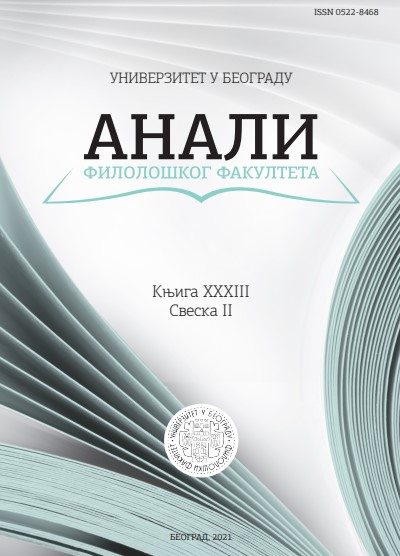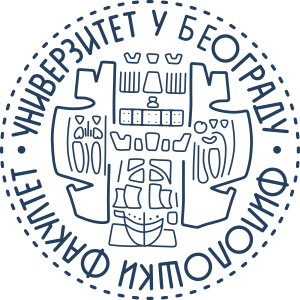Praznina kao simptom emocionalne deprivacije u Heseovom Stepskom vuku
DOI:
https://doi.org/10.18485/analiff.2021.33.2.9Keywords:
emocionalna deprivacija, Hari Haler, Herman Hese, psihološka praznina, suicidalnost, životna krizaAbstract
U radu se analizira lik Harija Halera u romanu Stepski vuk Hermana Hesea kroz tumačenje praznine koja prožima njegovu dvostruku ličnost. Cilj rada je da pokaže da se u hroničnoj praznini i nemogućnosti da protagonista sagleda i integriše aspekte sopstvenog identiteta nazire dugotrajna emocionalna deprivacija, odnosno nedostatak ljubavi i empatije koje bi mu pružila okolina. Ukazuje se na biografske podatke relevantne za tumačenje romana, kao i na poreklo i odlike Halerove emocionalne nestabilnosti. Ističe se da psihološka shema emocionalne deprivacije potiče iz odnosa porodice prema Haleru, te da posledice neempatičnog odnosa obuhvataju otuđenost, usamljenost, samoprezir i psihološku prazninu, od kojih Haler nastoji da pobegne autodestruktivnim ponašanjem. Analizom opisa osećaja unutrašnje praznine, ponora i pustoši, zaključuje se da je njena funkcija višestruka, te da je kao simptom istovremeno sredstvo skrivanja sebe i svojih nedostataka, kao i posledica udaljavanja od samoga sebe i gubitka smisla. Naposletku, ističe se i da Haler potencijalne katalizatore promene pronalazi u ženskim likovima, koji treba da ga, kao eksternalizovane projekcije njega samog, podstaknu na emocionalni razvoj i zauzimanje životnog stava okarakterisanog humorom kao načinom prevazilaženja egzistencijalne i psihološke praznine.
Downloads
Published
How to Cite
Issue
Section
License

This work is licensed under a Creative Commons Attribution-ShareAlike 4.0 International License.
Authors who publish with this journal agree to the following terms:
- Authors are confirming that they are the authors of the submitting article, which will be published (print and online) in the journal Anali filološkog fakulteta by the Faculty of Philology, University of Belgrade (Faculty of Philology, Studentski trg 3, 11000 Belgrade, Serbia). Author’s name will be evident in the printed article in the journal. All decisions regarding layout and distribution of the work are in hands of the publisher.
- Authors guarantee that the work is their own original creation and does not infringe any statutory or common-law copyright or any proprietary right of any third party. In case of claims by third parties, authors commit their self to defend the interests of the publisher, and shall cover any potential costs.
- Authors retain copyright and grant the journal right of first publication with the work simultaneously licensed under a Creative Commons Attribution-ShareAlike 4.0 International License that allows others to share the work with an acknowledgement of the work's authorship and initial publication in this journal.
- Authors are able to enter into separate, additional contractual arrangements for the non-exclusive distribution of the journal's published version of the work (e.g., post it to an institutional repository or publish it in a book), with an acknowledgement of its initial publication in this journal.
- Authors are permitted and encouraged to post their work online (e.g., in institutional repositories or on their website) prior to and during the submission process, as it can lead to productive exchanges, as well as earlier and greater citation of published work.





